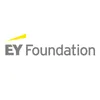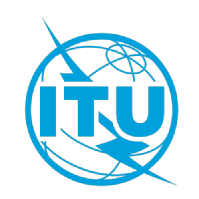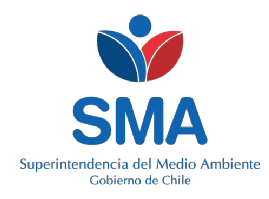Data Science for Social Good

DSSGx UK no longer running
What is Data Science for Social Good (DSSG)?
DSSG helps not-for-profit organisations and government bodies to achieve more with their data by enhancing their services, interventions and outreach, helping fulfil their mission of improving the world and people’s lives.
The programme gives not-for-profit organisations and government bodies unprecedented access to inspiring, top-tier data science talent. This helps build their capacity to use cutting-edge quantitative methods to address societal challenges in areas such as education, health, energy, public safety, transportation and economic development.
At the same time, it provides intensive case-based training to students to create industry-standard data science products in collaboration with government agencies and NGOs, to deliver positive social impact. And it builds a world-wide community of data scientists who care about the social good.
The DSSG Foundation’s core summer Fellowship was set up in 2013 by Rayid Ghani, former Chief Scientist for President Obama. The US Fellowship is based at Carnegie Mellon University.
In 2019, the University of Warwick together with the Alan Turing Institute brought DSSG to the UK. The University of Warwick has run it each year since including DSSGx UK 2023, which was held at the University of Warwick, UK, from 5 June to 25 August.
DSSGx in the UK
In 2019, the University of Warwick collaborated with The Alan Turing Institute to bring DSSG to the UK as an affiliate programme of the DSSG Foundation’s core summer Fellowship at Carnegie Mellon University. In 2020, it has been running online due to the Covid-19 pandemic.
In 2021, Warwick delivered the DSSGx UK Summer Projects in collaboration with Ludwig-Maximilians-Universität in Munich, once again online due to the pandemic. For a fellows perspective on the 2021 experience, see here: University of Warwick and LMU.
In 2022, DSSGx UK was held in person at the University of Warwick, which enhanced the experience for the fellows, by providing the opportunity to work closely alongside their team members, mentors and the wider DSSGx team, as well as benefiting from the great campus life the university can offer.
In 2023, DSSGx was held in person at the University of Warwick again.
Projects from previous years:
For see more projects - 2019, 2020, 2021, 2022 and 2023
Buckinghamshire Council & EY Foundation – Supporting Young People
In this project, we are be working with Buckinghamshire Council to predict and identify children with high risk of becoming NEET (Not Employed, in Education or Training), which is linked to a higher likelihood of unemployment, low wages, and lower quality of work later in life. Based on the prediction, Buckinghamshire Council will be able to provide additional support to the children at risk, with the goal of reducing the rate of NEETs from 7% to below the national average of 5.5%. The tool will also be usable by other councils.


UNICEF & Save the Children – Child Poverty
This is a joint project between UNICEF and Save the Children to predict multi-dimensional child poverty in developing countries, to optimise both organisation’s resource allocation, national policy planning and ongoing advocacy across 50+ wide-ranging projects. These programs impact 197 million children each year alone in immunization, sanitation, nutrition and education outcomes. We will take reference from Facebook’s Data4Good publications on the Global Wealth Index and use multiple data formats from satellite imagery to local survey data to create a resource prioritization application.


Mapping the world’s offline population
The project is in collaboration with the International Telecommunication Union (ITU), a specialised agency of the United Nations responsible for all matters related to information and communication technology. ITU’s mission is to facilitate connecting all the world's people and to protect and support everyone's right to communicate. ITU and UNICEF have joined forces in the Giga initiative in a bid to connect every school to the Internet by 2030. Aside from directly benefitting children, schools often act as community hubs and so connecting a school often connects the surrounding community too. This project aims to integrate a number of different data sources to provide real-time estimates of the number of offline people in local areas that would benefit from extending Internet connectivity. The new model will inform the prioritisation of infrastructure projects within Giga as well as policy and decision making at the community level more broadly, and enhance the understanding and use of national and local level internet connectivity data.
Project in partnership with ITU.
Prioritising environmental complaints
This project is a collaboration with the Superintendency of the Environment (SMA) in Chile. SMA is a public service responsible for conducting environmental inspections and ensuring compliance of thousands of facilities to protect the environment and public health. Due to its limited budget, SMA cannot afford to respond to all citizen demands so it must prioritize where to allocate its efforts. Thousands of citizen complaints are received yearly on a wide range of environmental problems, and this figure has quadruplicated the past year with the launch of online complaints. Each citizen complaint needs to be analysed, and where relevant, lead to inspection and sanction processes. The project will use a mix of structured (e.g., facility information) and unstructured (e.g., description of environmental problems) data to attempt to prioritise complaints by identifying those that are more likely to lead to grave sanctions as well as those that are outside of the SMA remit. This will help SMA attend to some of the environmental and public health issues that require pressing attention.
Project in partnership with SMA.
Join with us:
Applications for DSSG 2023 are now closed.
For undergraduate or postgraduates at a higher education institute, DSSGx provides an unrivalled opportunity to spend the summer working with an international team of data scientists on a project with real social impact.
DSSGx gives aspiring data scientists the opportunity to refine their data science skills through intense training, and by working in small supervised teams on real-world data mining, machine learning, and data science projects. Participants will work with global non-profit organisations and government bodies to make a real-world social impact with their data, by improving their services, interventions, and outreach.
Teams will be supported by technical mentors and project managers, and alongside the project runs a training programme that will be flexibly adapted to cover the needs of the team and the project.
If you have a passion for data science, care about the social good and want to work in an international team, we would welcome your application. Feedback from previous participants is exceptionally positive and while most of our fellows are late stage undergraduate or graduate students, including PhD students, we look at skills, not at the number of university years.
Admission is highly selective. We usually receive hundreds of applications for a very small number of places (around 16 places each year). The recruitment process involves completing the application form and, if selected, two rounds of interviews, looking at technical competencies in addition to finding out more about each selected applicant.
This is an intense, 12-week, full-time internship. All selected fellows will receive a stipend covering their living costs and expenses. Accommodation and travel will be provided for DSSGx UK.
As a sponsor
We're looking for sponsors to work with our projects and third sector partners, as well as core sponsors that share our vision, aim and values. The programme attracts incredible talent and supports them to deliver high impact, data driven projects for social good. Sponsors continue to benefit from the reputation of the programme and alignment with project goals long after the summer programme ends.
To learn more, please contact dssg@wbs.ac.uk
As a project partner
If you're a non-profit or government organisation with a data science challenge, you can apply to become a project partner. The Opportunity: DSSGx is looking for project partners who want to tackle critical social challenges and believe that data can improve their operations and interventions with tangible social impact. As a project partner, you get:
- a strong data science team that cares about your challenges
- a prototype solution (report, predictive model and software) that helps solve your problem using data science tools
- exposure and training — for the project at hand but also how to tackle these projects technically as well as through validation.
All of this comes free of charge (although running DSSGx is costly, and we would appreciate a voluntary contribution where possible). How does it work? Each non-profit organisation is matched together with a data science team of 3 - 4 outstanding international students (undergraduate to PhD) who will develop a tailored approach to the organisation’s challenge over the summer. Their academic strength is complemented by professional technical mentors and project managers. The latter ensure that the time is used efficiently, the deliverables for each week are achieved and that the organisation’s goals are met. The aim overall is to combine the training of students and recent graduates with the delivery of tangible data products that can help the third sector embed AI and data science into their operations. The DSSGx 2023 programme is anticipated to run at the University of Warwick campus. Deadline and requirements The initial deadline for applications is the 16th December 2022. Project applications will go through a scoping process with data science experts to ensure feasibility and agree goals and deliverables. The partner organisation must be able to commit one day a week equivalent through the summer to take part.
If you're interested in becoming a project partner, we have an initial 'Expression of Interest' form here.
Although we have an initial close date of 20th January 2023 for the 2023 programme, we're happy to hear about possible projects all through the year, so please get in touch.
Here's what previous partners have said about us
“High-quality and granular data on child poverty is essential for governments, civil society organisations and many others to better understand and address violations of child rights. But in many cases, we don't know exactly where the poorest children live. The DSSG fellows have done an extraordinary work to build a publicly accessible model which predicts child poverty on a very local level. We are now continuing expanding this analysis to many more countries and are excited using this work in our advocacy and policy work going forward.”
Oliver Fiala, Save the Children
"The DSSG experience has been amazing – the fellows are embarrassingly smart and I’m impressed by the quality of their work and their dedication to the project."
Youlia Lozanova, ITU
As a Technical Mentor or Project Manager
Applications for 2023 are now closed.
- Technical Mentors typically have a strong technical background, often a PhD in data science, computer science, statistics, social science or public policy, plus several years of industry experience.
- Project Managers typically have a background in delivering technical projects, with strong relationship management skills.
In either role you'll work with top international data science talent on projects that really matter. To find out more, visit Job Opportunities
As a volunteer
We are looking for socially-minded volunteers with data science experience to lend their time and expertise to help deliver DSSGx 2021. For more information and to put yourself forward please contact dssg@wbs.ac.uk
Organisers
University of Warwick
- Marya Bazzi, Mathematics
- Juergen Branke, Warwick Business School
- Colm Connaughton, London Mathematical Laboratory
- Martyn Plummer, Statistics
-
Christian Robert, Statistics
- Clare Roberts, Warwick Business School
- Long Tran-Thanh, Computer Science
We gratefully acknowledge the support from our sponsors and collaborators.

|

|

|
|
Register your interest
To register your interest or to find out more about how you can get involved, please contact dssg@wbs.ac.uk
Stay informed
Interested, but not ready yet?
Sign up to our DSSG mailing listLink opens in a new window to be notified about future opportunities.


We take handling your data seriously. Please see our privacy noticeLink opens in a new window for details.
Quick Links
DSSGX UK 2019
DSSGx UK 2020
DSSGx UK 2021
DSSGx UK 2022
Quick Links
DSSGX UK 2019
DSSGx UK 2020
DSSGx UK 2021



